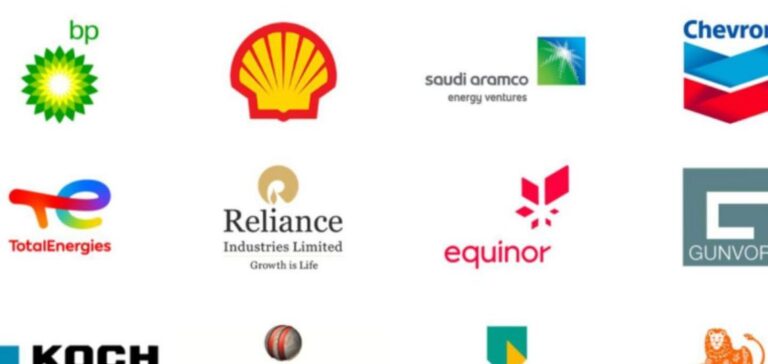All the major oil & gas companies, including ExxonMobil and BP, suffered losses after an exceptional 2022. Profits for these companies plummeted in the first half of the year due to a lull in hydrocarbon prices. Despite this situation, they remain highly profitable.
Significant fall in oil and gas majors’ profits in the first half of 2023
BP reported Q2 earnings of $1.8 billion, down 5-fold year-on-year. Before him, ExxonMobil saw its profits fall by 56% to $7.9 billion. Chevron also lost almost half its earnings, reaching $6 billion. Shell recorded a 64% drop to $3.1 billion.
TotalEnergies: Relative resilience in the face of falling earnings
France’s TotalEnergies held up a little better with a gain of $4.1 billion, down 28%. All these companies have suffered from “fluctuating oil, gas and refined product prices”, and lower refining margins, as BP summed up on Tuesday. By 2022, the five Western majors had amassed combined profits of $151 billion, thanks not only to the surge in hydrocarbon prices linked to the recovery in post-Covid demand, but even more so to the Russian invasion of Ukraine and the drying up of Moscow’s pipelines.
“2022 was clearly an exceptional year”, “not a normative one”, EY analyst Moez Ajmi reminded AFP.
Promising outlook for 2023 despite lower oil and gas prices
A year later, oil and especially gas prices have fallen back, squeezing the flamboyant profits of the sector’s giants. The Dutch TTF futures contract, considered the European benchmark for gas, has been fluctuating between 25 and 55 euros per megawatt-hour (MWh) for the past three months, whereas it had approached 350 euros in March 2022, just after the start of the war in Ukraine. Brent North Sea oil averaged $78.1 a barrel in the second quarter, a far cry from the almost $114 average for the same period in 2022.
But despite their lower earnings, the majors remain “very profitable, as evidenced by their policy of returning to shareholders by increasing dividends, higher capital expenditure than last year, and improved debt ratios”, notes the EY analyst. Shell has announced a 24% increase in interim dividends, and the majors’ share buyback programs have been “substantial”, according to his calculations.
Sustained oil and gas prices for an “excellent 2023”.
Everything points to the majors heading for an “excellent 2023”, albeit of “lesser” intensity, thanks to sustained “price levels”, according to Mr. Ajmi. “Oil prices will be high, well above $80, as the economic outlook looks better,” points out Adi Imsirovic, director of Surrey Clean Energy.
This trend is also underpinned by Saudi Arabia and Russia’s desire to reduce their volumes.
As for gas, “the market has stabilized somewhat”, “European stockpiles (…) are fairly full, and in the absence of an exceptionally harsh winter, prices should remain moderate”, adds this oil industry expert.
Environmental challenges facing North Sea oil and gas exploration projects
But a very cold winter and the return of Chinese demand could “quickly push up prices”. Gas, in its liquefied form, will remain a long-term priority for the sector. The industry sees LNG as a transitional energy source with lower greenhouse gas emissions. In contrast to the efforts needed to limit global warming to 1.5°C above pre-industrial levels, the reference target of the Paris agreements, on Monday the British government promised “hundreds” of new oil and gas exploration and production licenses in the North Sea, provoking an outcry from environmental groups.
The distribution of these permits “will do nothing to improve our energy security”, other than allow “companies like BP and Shell to make even more money for their shareholders”, criticized Greenpeace UK advisor Charlie Kronick on Tuesday. Earlier this year, Shell and BP announced a downward revision of some of their energy transition targets.






















